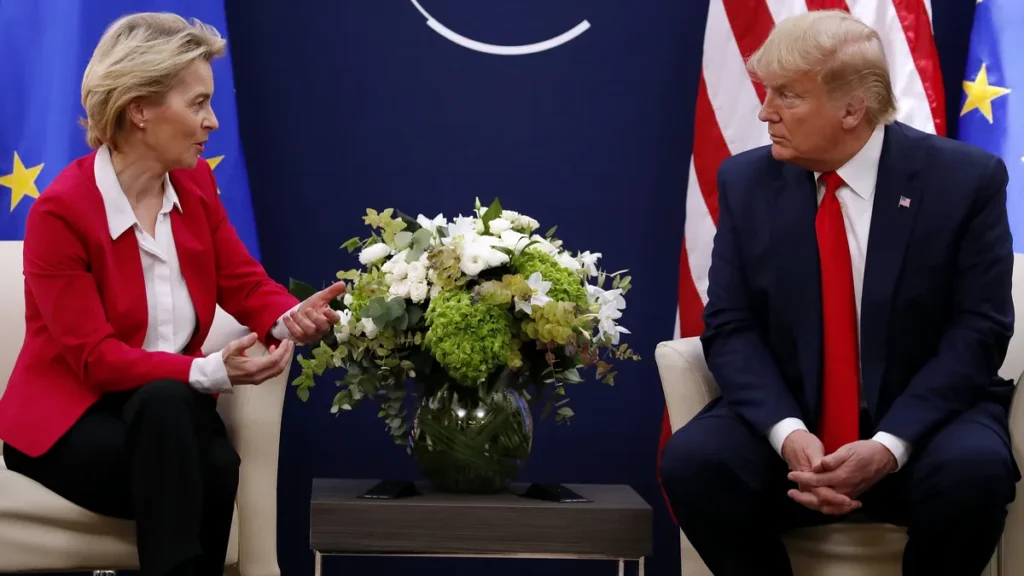EU Pledges Retaliatory Measures Against U.S. Tariffs if Negotiations Stall
EU Pledges Retaliatory Measures Against U.S. Tariffs if Negotiations Stall
By
Leah Rosenfeld
Last updated:
April 3, 2025
First Published:
April 3, 2025

Source: FIRSTonline
In a significant escalation of transatlantic trade tensions, European Commission President Ursula von der Leyen announced that the European Union is prepared to implement countermeasures against the United States if ongoing negotiations fail to resolve disputes over newly imposed U.S. tariffs. This development follows President Donald Trump's recent decision to levy a 20% tariff on European imports, a move that has drawn widespread criticism from EU leaders.
EU's Response Strategy
The European Union has outlined a two-phase approach to address the U.S. tariffs:
- Reinstatement of Suspended Tariffs: Initially, the EU plans to reintroduce previously suspended tariffs affecting approximately €8 billion ($8.7 billion) worth of U.S. goods. These measures, which were originally imposed in response to similar U.S. actions during Trump's first term, had been on hold following negotiations with the previous U.S. administration.
- Additional Tariffs on U.S. Imports: In the subsequent phase, the EU intends to impose new tariffs targeting an estimated €18 billion ($19.6 billion) worth of U.S. exports. This expanded list encompasses a diverse array of products, including industrial items like steel and aluminum, textiles, home appliances, and agricultural goods such as beef and poultry.
Targeted U.S. Products
The EU's countermeasures are set to impact a broad spectrum of American products, reflecting the extensive nature of the dispute. Notably, the list includes steel and aluminum products, textiles, home appliances, plastics, and various agricultural products. This strategic selection aims to exert pressure on key sectors of the U.S. economy.
Global Economic Implications
The imposition of these tariffs has raised alarms about potential repercussions for the global economy. President von der Leyen characterized the U.S. tariffs as a "major blow" to international economic stability, warning that such measures could lead to increased prices for essential goods and services, thereby affecting consumers worldwide.
Calls for Dialogue
Despite the firm stance on countermeasures, EU officials have expressed a preference for resolving the dispute through negotiations. Von der Leyen emphasized the importance of moving from confrontation to dialogue, indicating that the EU remains open to discussions aimed at finding a mutually beneficial solution.
As the situation develops, the European Union's readiness to implement countermeasures underscores the seriousness of the current trade dispute with the United States. The potential for escalating tariffs highlights the need for diplomatic efforts to prevent further economic disruption. Stakeholders across various industries are advised to monitor these developments closely, as the outcomes could have far-reaching implications for international trade relations.








